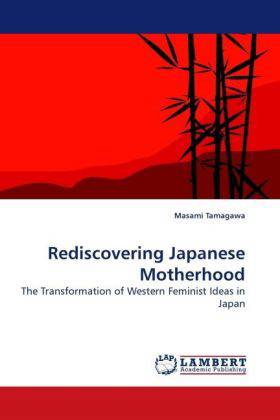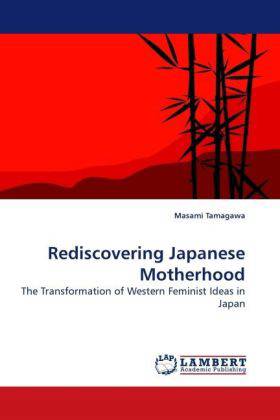
Door een staking bij bpost kan je online bestelling op dit moment iets langer onderweg zijn dan voorzien. Dringend iets nodig? Onze winkels ontvangen jou met open armen!
- Afhalen na 1 uur in een winkel met voorraad
- Gratis thuislevering in België vanaf € 30
- Ruim aanbod met 7 miljoen producten
Door een staking bij bpost kan je online bestelling op dit moment iets langer onderweg zijn dan voorzien. Dringend iets nodig? Onze winkels ontvangen jou met open armen!
- Afhalen na 1 uur in een winkel met voorraad
- Gratis thuislevering in België vanaf € 30
- Ruim aanbod met 7 miljoen producten
Zoeken
Rediscovering Japanese Motherhood
The Transformation of Western Feminist Ideas in Japan
Masami Tamagawa
Paperback | Engels
€ 77,95
+ 155 punten
Omschrijving
Gender discrimination in Japan is deeply embedded in its socio-cultural structure and ideology. So issues stemming from gender discrimination may sometimes not appear to be explicitly sexist or problematic. Japanese feminists, too, can possibly be profoundly bound by them, and may fail to see that they really are the causes of gender discrimination in Japan. In modern Japanese feminist history, there have been a number of cases in which Japanese feminists tried their best to improve the conditions of Japanese women, often by co-opting Western feminist ideas. In some respects, they were successful; their seemingly "feminist" activities, however, paradoxically resulted in the perpetuation of "bosei" a Japanese motherhood ideology. This study explores a genealogy of "bosei" as a socially constructed patriotic idea, and examines the ways in which it was first constituted and reconstituted in the course of the Japanese nationalist movement, and has since then been repeatedly legitimated and reinforced by Japanese feminists, thus becoming a powerful ideological means to confine Japanese women to their supposedly "traditional" gender roles.
Specificaties
Betrokkenen
- Auteur(s):
- Uitgeverij:
Inhoud
- Aantal bladzijden:
- 236
- Taal:
- Engels
Eigenschappen
- Productcode (EAN):
- 9783838308647
- Verschijningsdatum:
- 26/08/2009
- Uitvoering:
- Paperback
- Formaat:
- Trade paperback (VS)
- Afmetingen:
- 152 mm x 229 mm
- Gewicht:
- 349 g

Alleen bij Standaard Boekhandel
+ 155 punten op je klantenkaart van Standaard Boekhandel
Beoordelingen
We publiceren alleen reviews die voldoen aan de voorwaarden voor reviews. Bekijk onze voorwaarden voor reviews.











